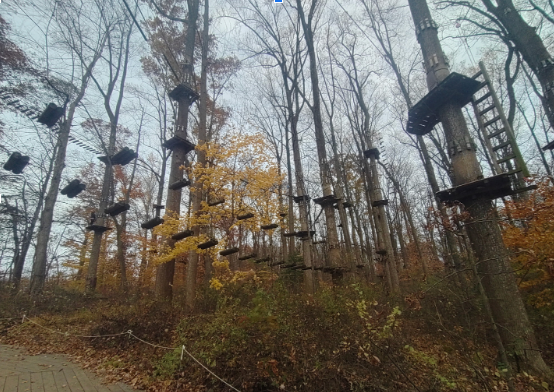School Without Phones: A Look At the New DCPS Phone Policy
- Vivian Astmann
- Nov 2, 2025
- 2 min read

Among the many changes for the new school year, one stood out: the new cell phone policy. According to the policy, students must keep their phones in their backpacks—from the time they enter the school until 3:30. During the first weeks of school, administration made multiple announcements about the rule, since it was district-wide and left little room for students to be on their phones.
Like last year’s, this year’s policy implem
ents stricter measures, including phone pouches, seeking to reduce distractions in the classroom.
The policy also tries “to standardize [phone use] across all schools, because schools were doing different things,” according to Ms. Moore, the 10th grade counselor. This year, all schools are doing something similar–except for Walls. Administration reports that, since Walls students venture off campus during lunch, it is necessary for students to have phones to communicate with friends, pay for food, and generally stay safe.
“They gave schools the option to do what we were doing, which was letting students keep their phones, but they needed to be away, or have some sort of a phone-locker system,” Ms. Moore added. By letting students keep phones in backpacks, they could be taken out for open lunch if students were eating outside or on the terrace.
When asked whether Wall might loosen the policy in the future, Ms. Moore said, “I didn’t think so, because this policy was a bell-to-bell DCPS policy.”
The policy, however, stirred controversy among students. Some, like Lars Kearney (‘28), were grateful for its leniency. “We were lucky to have our phones and to be able to put them in our bag,” he said.
Anais Ahlstrom (‘27) agreed. “I thought it was helpful. Walls was already doing a less extreme version and I liked where we were,” she said, comparing it to the Yondr pouches in use at Jackson-Reed and other schools around the district.
One drawback, Ahlstrom added, was that “it was inconvenient, especially for lunch when people were ordering ahead.”
To Ruth Teka (‘28), it felt unnecessary to enforce the policy before school hours. “If someone got here earlier,” she said, “they weren’t technically allowed to use their phone in the morning.” For many students who had clubs or wanted to get in some last-minute studying before the day started, a phone could be very helpful.
Teka added that the phone ban has backfired in some cases, incentivizing students to find loopholes and further disengage from classes. “Some of the students were going outside just to use their phone, which actually just pushed them away from their peers,” she said.
Others, like Oscar Bonilla (‘28), felt that having phones at school was important, “especially considering where we were located and how we had to pay for lunch.”
Although the policy felt problematic to some at first, it also served as a reminder of how fortunate Walls was to have more flexibility than other schools. With this new rule, DCPS aims to balance staying connected with staying focused in academic settings. While it may take time to adjust, the policy seems to be here to stay.







